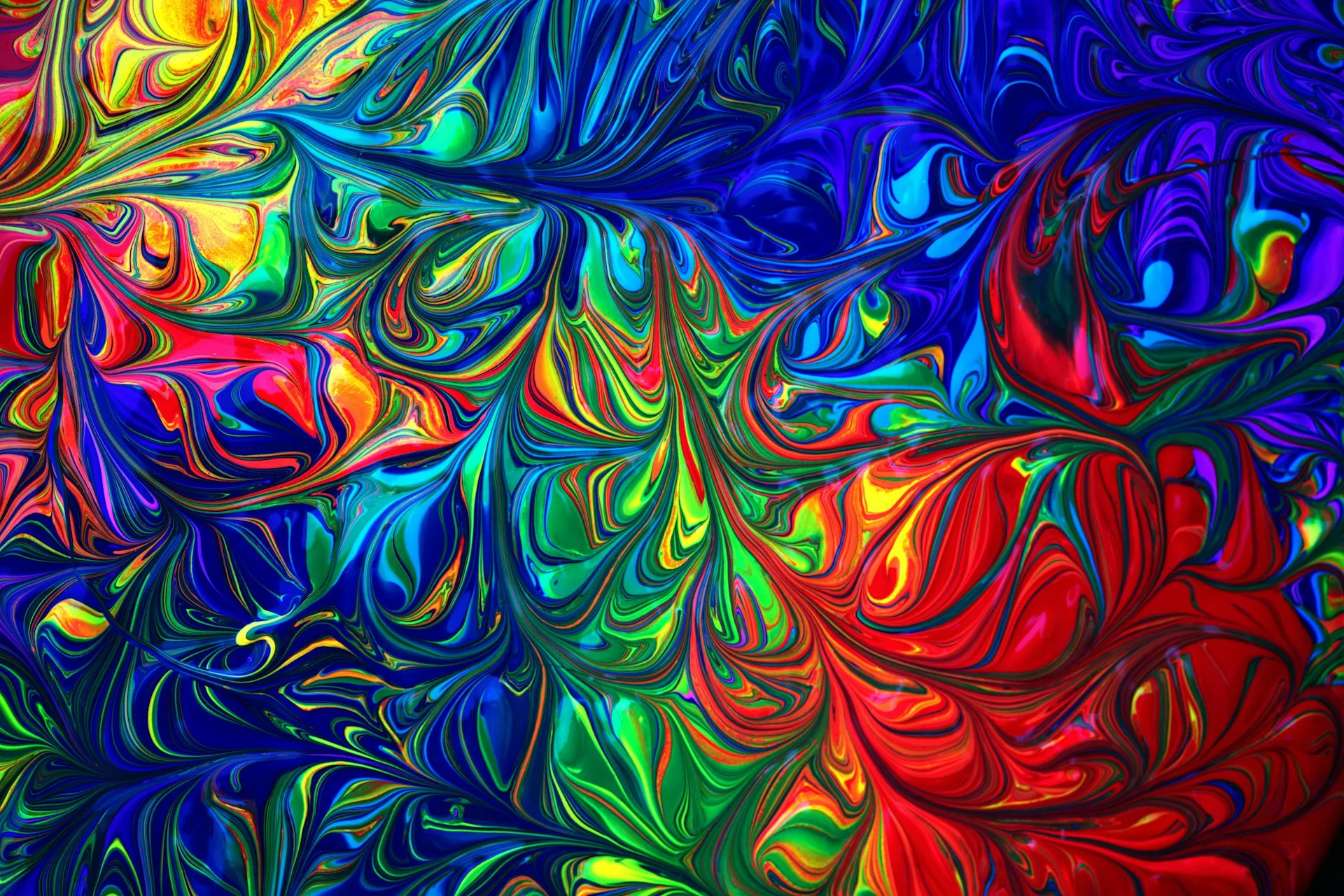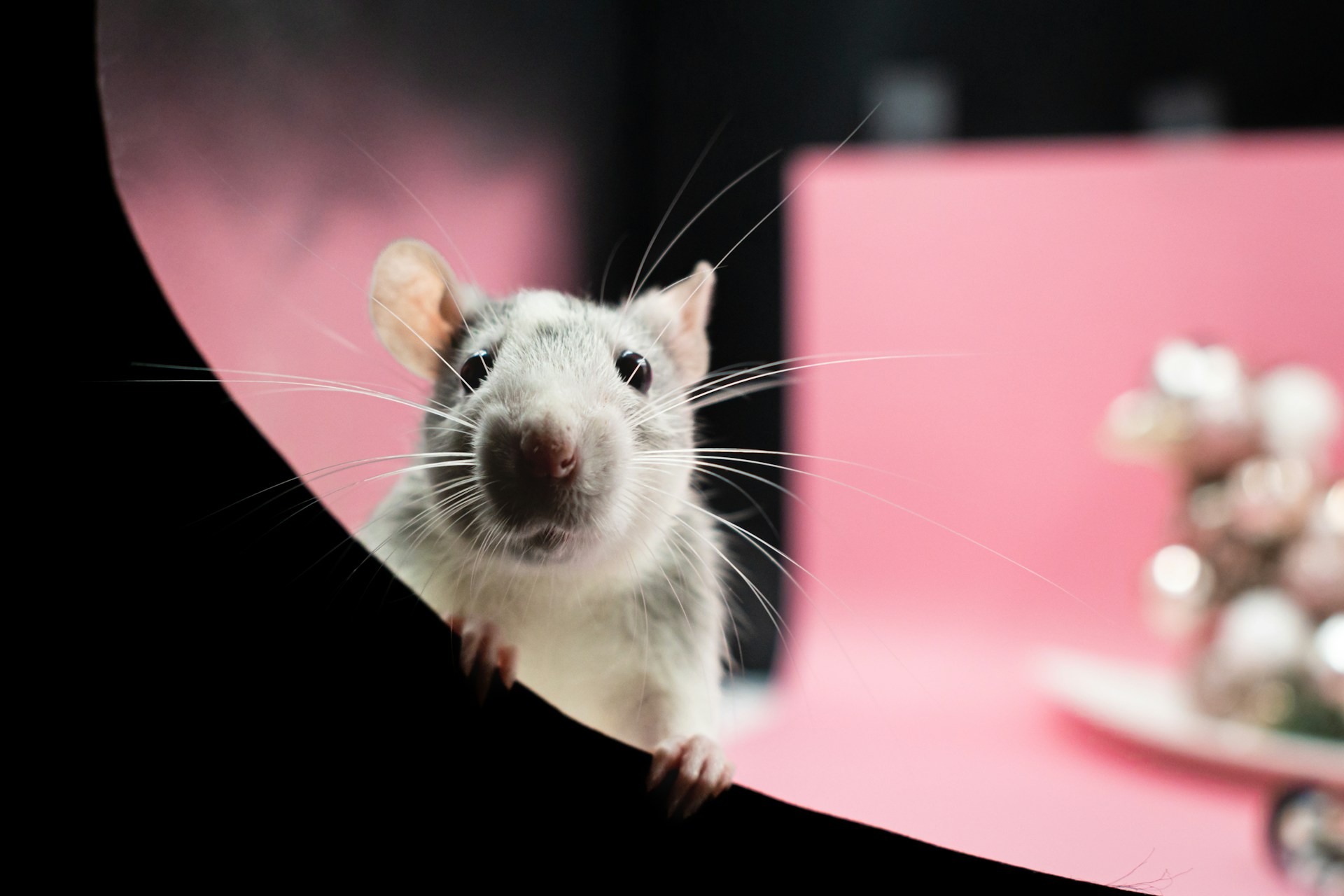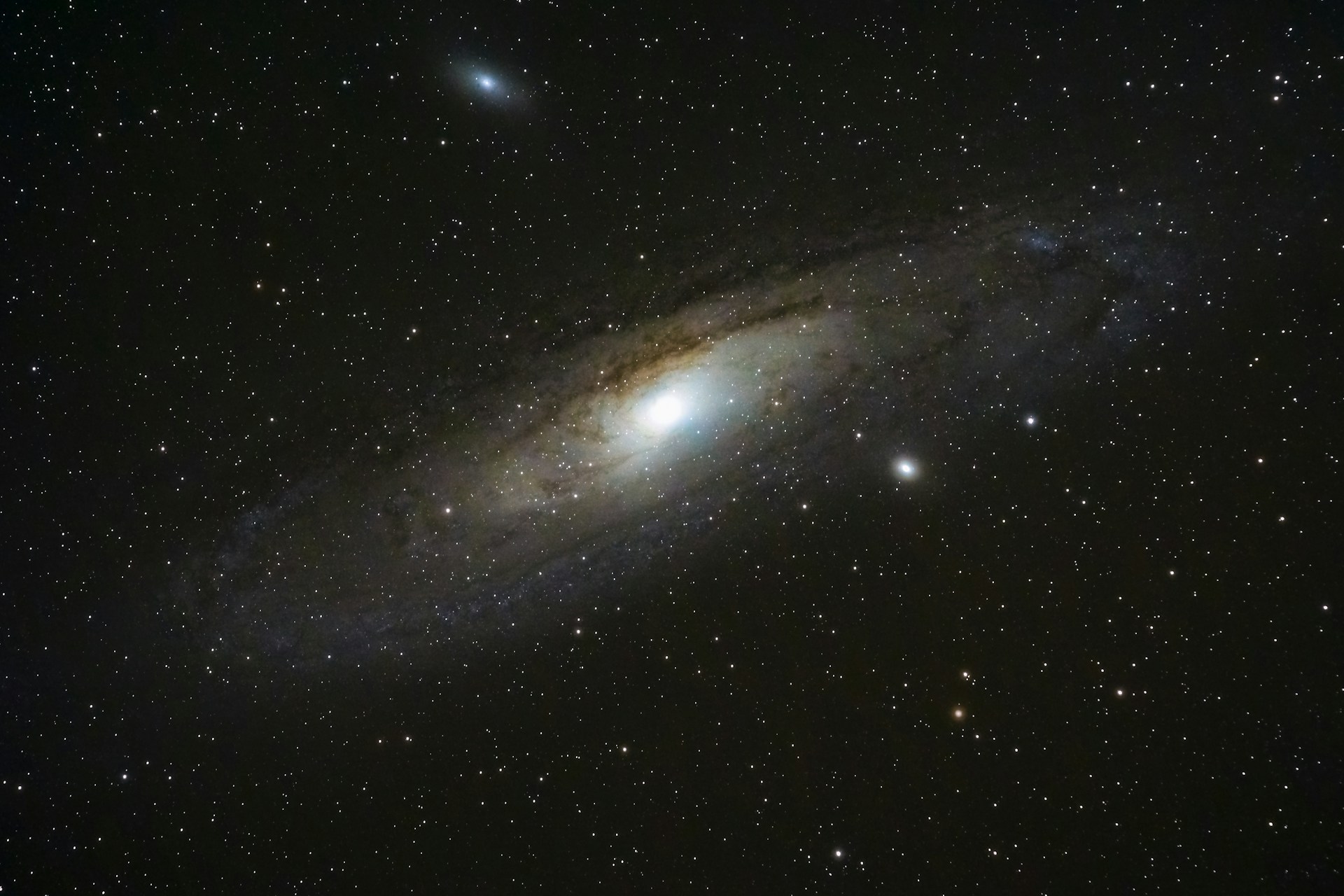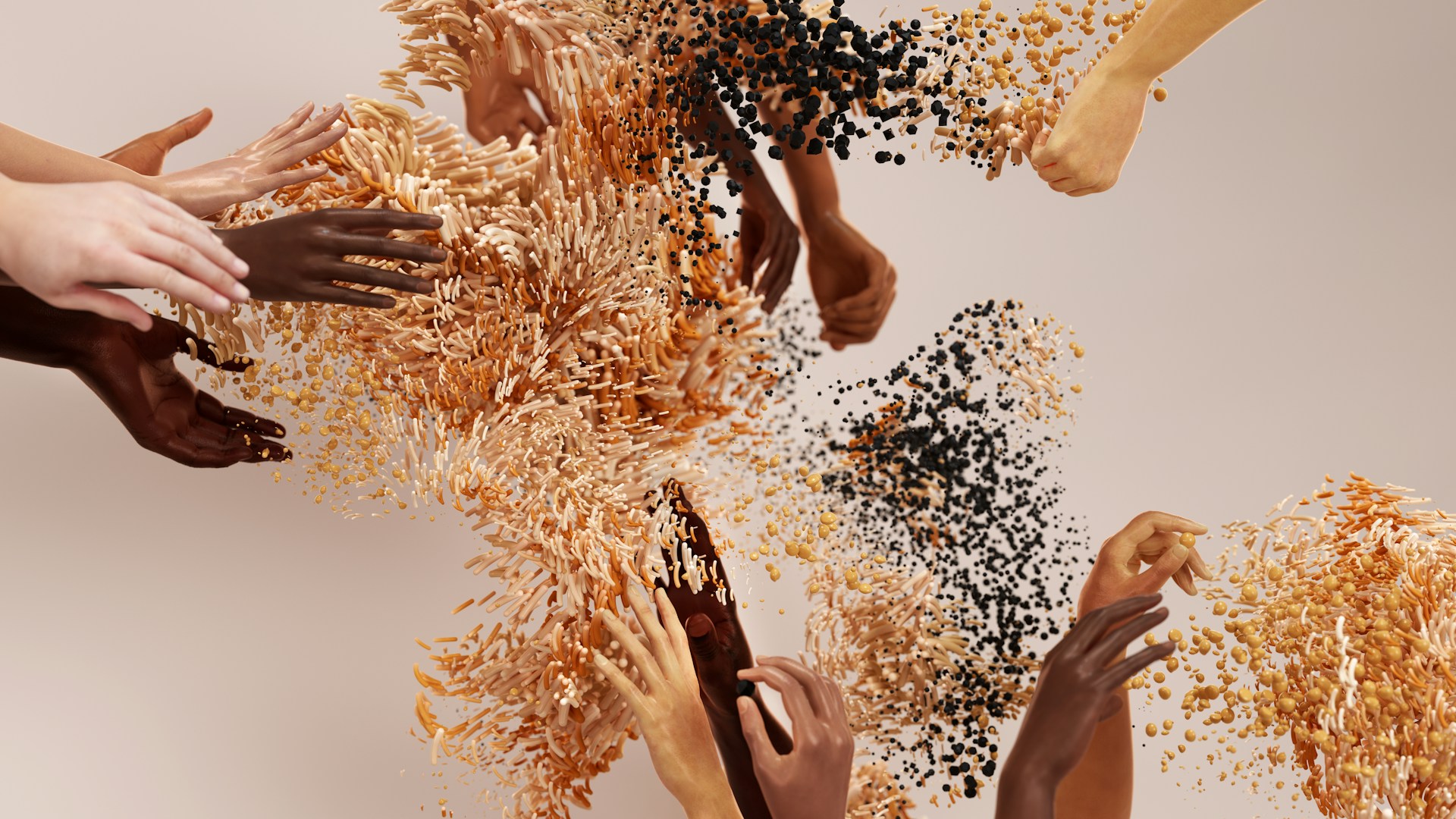We must reconcile the rise of psychedelics in clinical research with Indigenous rights, voice and safety. Photo credit: Alexander Grey via Unsplash
“We can’t start history of psychedelics in the ‘60s in the Americas; that needs to stop. We [Indigenous people] used this medicine before Jesus Christ walked this Earth.”
Lisa M. Macias Red Bear, Injustice, Intersectional Trauma, and Psychedelics, 2017
With more than 300 million people suffering from depression and anxiety worldwide, news of novel and effective treatments prompts tremendous excitement and interest among the scientific community and the general public. Psychedelic substances could fit this criteria, as shown by recent FDA approvals and “breakthrough therapy” designations for psychedelic-based treatments, and the $6.85 billion in projected profits for the industry by 2027. While psychedelics seem to be more readily welcomed by the Western medical community, some of those who have known and engaged with these substances for generations are worried. Indigenous Nations researchers and activists have raised a multitude of concerns regarding the commercialisation and regulation of their traditional medicines. This raises the question as to whether the colonisation of psychedelic treatments by Western medicine is inevitable, or whether Western and Indigenous perspectives can coexist.
The rise of psychedelics in Western medicine
Psychedelics were first systematically studied as treatments for mental health disorders in the West during the 1950s and 60s, with psychiatrists optimistic about their ability to treat anxiety, depression, and various types of substance dependence. This hypothesis is supported by evidence that psychedelics act upon specific 5-HT2A serotonin receptors in the brain, an interaction believed to be responsible for the drugs’ hallucinogenic and perception-altering properties, as well as the experience of ego dissolution often reported during psychedelic “trips”. Psychedelics are also thought to inhibit the activity of the Default Mode Network, which plays a crucial role in shaping our sense of self. Alterations within this network are associated with conditions like anxiety and depression.
Despite these findings, as recreational use of psychedelics increased during the 1960s, these substances became associated with countercultural movements and non-conformist, anti-government behaviour. Additionally, unethical practices such as the administration of high doses of psychedelics to restrained patients were not uncommon, leading to a large-scale change in public opinion, and the classification of many psychedelics as Schedule I substances in the United States, effectively barring them from medical use.
Following this multi-decade research break, however, psychedelic research is experiencing a full-blown renaissance. A plethora of methodologically robust clinical trials conducted in the last 20 years have produced promising results for the use of classic psychedelics such as N,N-Dimethyltryptamine (DMT), lysergic acid diethylamide (LSD), and psilocybin in the treatment of anxiety, depression, and PTSD. Several pharmaceutical companies have invested billions of dollars into developing and testing psychedelic agents for the treatment of these disorders, aiming to dethrone the typically used drugs by providing a faster-acting therapy with fewer side effects.
Indigenous communities’ psychedelic commercialisation and neo-colonialism concerns
Prior to European colonisation, Indigenous Peoples in the Americas upheld holistic systems of care rooted in spiritual practices and plant-based medicines such as psilocybin, ayahuasca, and peyote. Impressively, despite the injustices of colonisation, many Indigenous traditions have endured, serving as the foundation for modern medicine’s exploration of psychedelic substances’ therapeutic potential. While the success of the modern psychedelic medicine movement owes much to Indigenous healing practices, Indigenous voices and leadership remain notably absent from Western psychedelic research and therapy spaces, with the field predominantly represented by Western perspectives. Even when Indigenous voices are engaged, their involvement often lacks substantive benefits for their communities. Despite the multi-billion-dollar industry that psychedelic research has become, Indigenous communities, who make up a significant proportion of the world’s population and face disproportionate rates of poverty and health disparities, have seen few health or economic benefits from these ventures. Western psychedelic practitioners and facilitators, in contrast, can command substantial earnings, exacerbating these disparities.
While the success of the modern psychedelic medicine movement owes much to Indigenous healing practices, Indigenous voices and leadership remain notably absent from Western psychedelic research and therapy spaces…
The process of extraction and commercialisation of traditional Indigenous medicines by Western institutions poses grave threats to Indigenous ways of life. These include exploitative practices such as ‘spiritual consumerism and exploitative tourism’ by Westerners, and unsustainable foraging practices that disrupt local ecosystems and threaten the availability of medicines for use by the local Indigenous communities. As a result of the popularisation and commercialisation of psychedelics, Indigenous communities also face increased violence from drug cartels encroaching on their territories to acquire these substances, with little to no federal protection or safeguarding. Moreover, the spread of misinformation about psychedelic plant medicines risks diluting their cultural significance and meaning. Existing legal frameworks largely fail to address the rapid commodification and commercialisation of Indigenous medicines in Western contexts or its consequences, with very few countries offering legal protection to traditional Indigenous medicine.
Indigenous worldviews receive minimal attention within Western psychedelic research and therapy, leading to the decontextualised appropriation of traditional Indigenous medicines, undermining Indigenous autonomy, health, and land rights. Thus, there is an urgent need for ethical responsibility in the psychedelic research and practice communities. This would necessarily involve the recognition and upholding of Indigenous rights while using traditional Indigenous knowledge and practices.
Advancing Western medicine while preserving and highlighting Indigenous perspectives
In a historic first, a global Indigenous-led consortium gathered between October 2021 and March 2022 with the aim of establishing ethical guidelines for the use of traditional Indigenous medicines in Western psychedelic research. The Indigenous Consensus panel, which included individuals with extensive expertise and familiarity with traditional Indigenous medicines, produced a set of guidelines and recommendations that it is hoped will help to incorporate Indigenous perspectives into Western psychedelic research.
…a global Indigenous-led consortium gathered between October 2021 and March 2022 with the aim of establishing ethical guidelines for the use of traditional Indigenous medicines in Western psychedelic research.
At the heart of these guidelines lies a profound reverence for Mother Nature, encapsulating traditional Indigenous healing as an ‘ethical, ecosystem-protective, and holistic system of medicine’ that fosters interconnectedness between humanity and the environment. Also central to the framework is the unequivocal recognition of Indigenous Peoples and their traditional medicines and practices as the bedrock of Western psychedelic research. The guidelines underscore the importance of seeking guidance from Indigenous scholars, practitioners, organisations, and Indigenous-led ethical review bodies. Western institutions are also urged to take accountability for instances of cultural appropriation or exploitation of Indigenous peoples and their cultural practices. Lastly, the guidelines emphasise the need for formal regulation and recognition of traditional Indigenous medicine within intellectual property legal systems. The safeguarding of Indigenous intellectual property rights would also promote their fair and equitable compensation, and the distribution of benefits derived from Indigenous medicines, knowledge, and cultural and spiritual heritage.
Restoring the delicate balance between Western medical progress and respect for Indigenous populations and traditions is no easy task. Such an achievement requires psychedelic research institutions to prioritise collaboration with Indigenous practitioners who have pioneered psychedelic discovery, to set robust intellectual property protections and legal safeguards, and to show respect for Indigenous knowledge on par with that for Western biomedical research and discovery. Thus, psychedelic science should dare to adopt a political lens, and advocate for cultural humility and reciprocal engagement with Indigenous communities, while also caring for their own.





